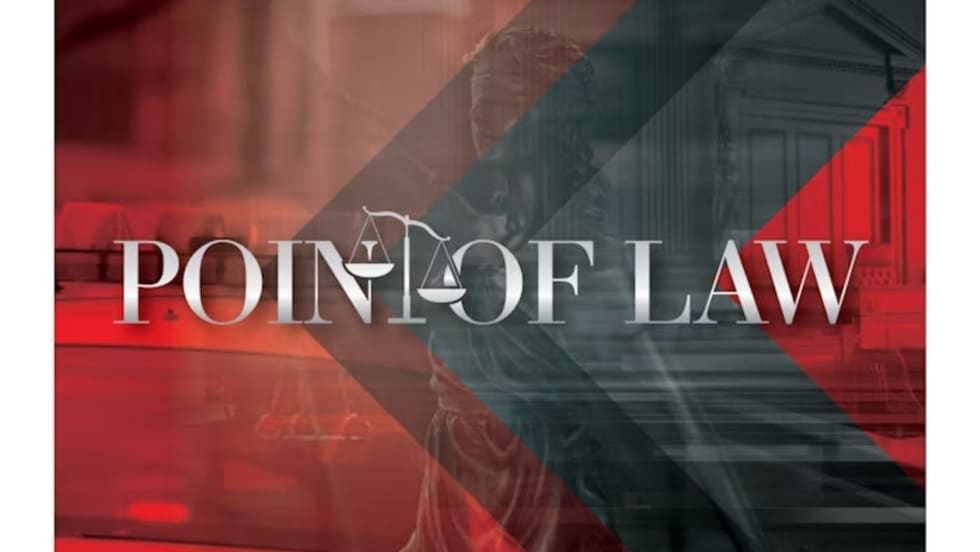Trying to inject humor into police training, especially use-of-force training, can be a terrible mistake.
It’s common for law enforcement trainers to use humorous videos in classes to hold the attention of their students. But you need to know that this humorous content can be used against you, your agency, and your agency’s officers in a lawsuit.
Let’s look at Wright vs. City of Euclid [No. 19-3452 (6th Cir. 2020)]. And to help you understand what the case is about, here’s a small snippet of what the court had to say: “This appeal involves a Chris Rock video and a cartoon, but it is no laughing matter.”
As you might imagine from these remarks, this appeal of a civil case alleging excessive force and false arrest did not end well for the officers or the City of Euclid, OH.
The Incident
Lamar Wright pulled into a friend’s driveway and spoke to a friend who was standing outside. The friend never came to the car and Wright never exited his vehicle. The visit lasted less than a minute and then Wright drove off.
Unknown to Wright, police were surveilling the house based on prior reports of drug sales. Officers followed Wright to another driveway at which point an officer exited their vehicle and approached Wright’s car with gun drawn. Fearing he was about to be robbed, Wright put the car in drive, but before he could move, he noticed the badge on one officer and heard the officer identify himself.
Wright then turned the car off as one officer grabbed Wright’s arm twisting it behind his back to handcuff him. Wright advised the officers that he recently had abdominal surgery and had a colostomy bag. Because of his weight and recent surgery Wright had difficulty exiting the vehicle. This caused the second officer to deploy a TASER, striking Wright in the abdomen. Wright was then removed from the vehicle and handcuffed.
Finding no drugs or weapons in the vehicle, officers charged Wright with resisting arrest, obstructing official business, failure to use a turn signal, and criminal trespass. A subsequent full-body scan at the detention center also proved negative for drugs. Seven months later all charges were dismissed.
Monell Claim
So how does this relate to the Chris Rock video and why can adding humor in use-of-force training be risky. The answer is Monell claims.
In 1978 the U.S. Supreme Court ruled in Monell v. Department of Social Services City of New York that cities and counties can be sued for the unconstitutional actions of their employees, if the actions taken by the employee are part of the policy or custom of the city/county agency.
In the Euclid case, there are several facts related to the Monell claims against the City that are worth mentioning. Wright alleged that the police department’s defensive tactics training evidences “a policy or custom of indifference to improper use of force by officers.” In support of this claim Wright offered the following:
• During the defensive tactics training, the training officer played a Chris Rock comedy skit titled “How To Not Get Your Ass Kicked By The Police.” The video shows various fictional clips where white officers are beating black suspects. The training sergeant testified that he thought the video was humorous “and depicted things that Euclid officers have experienced”.
• The first page of the PowerPoint presentation used in the training includes a stick figure cartoon displaying a police officer in tactical gear standing over a prone unarmed citizen. The officer is raising a club and the caption reads “Protecting and serving the poop out of you.”
• The training sergeant developed the PowerPoint and training and also reviews all use-of-force incidents. The Sergeant testified that he approved the use-of-force report in this incident and has never found a use of force to be “inappropriate.”
Wright filed a Section 1983 civil rights claim, alleging false arrest, excessive force, and failure to intervene claims against the officers and a Monell claim against the City of Euclid. Following the close of discovery, the defendant officers and City of Euclid filed a Summary Judgment motion seeking all claims be dismissed. The trial court granted the motion and dismissed all charges.
Wright appealed to the U.S. Court of Appeals for the Sixth Circuit.
Sixth Circuit Findings
The court first reviewed the officers’ actions with respect to the use-of-force claims. Wright claimed the officers used excessive force by drawing their weapons when approaching his car and their use of the TASER. The court reviewed the facts in the context of the three Graham factors finding that:
• Officers had very little if any reason to think Wright had committed a crime or possessed drugs. All the officers had was an observation that Wright had a momentary conversation with an acquaintance.
• Wright posed little if any threat to the officers at the time he was tased and officers had no reason to believe he was armed.
• Wright was not actively resisting at the time he was tased.
Construing the incident in a light most favorable to the plaintiff, the court ruled genuine factual disputes demand that the factual issues be decided by a jury.
The court then turned to the question of whether constitutional protections were clearly established at the time of the incident. Under the circumstances presented, it was clearly established that drawing a weapon on a suspect who was not fleeing or posing a safety risk and tasing a suspect who was not actively resisting was constitutionally prohibited. The court also reversed the trial court’s findings on the Section 1983 false arrest claims and the state tort claims.
The court then turned to the Monell claims brought against the City. The court determined that the Chris Rock video, PowerPoint cartoon, and the fact that no use-of-force review ever found an inappropriate use of force “gave rise to a culture that encouraged, permitted, or acquiesced to the use of excessive force.”
The following quote concludes the court’s opinion:
It is very troubling that the City of Euclid’s law-enforcement training included jokes about Rodney King—who was tased and beaten in one of the most infamous police encounters in history—and a cartoon with a message that twists the mission of police. The offensive statements and depictions in the training contradict the ethical duty of law enforcement officers “to serve the community; to safeguard lives and property; to protect the innocent against deception, the weak against oppression or intimidation and the peaceful against violence or disorder; and to respect the constitutional rights of all to liberty, equality, and justice.”
Takeaways
While I enjoy a joke as much as the next person, the Chris Rock video and other unprofessional materials have no business in any police training lesson plan. Having a cavalier attitude toward use of force is a recipe for legal disaster.
If you come away with nothing else from this case, at least take this opportunity to review your use-of-force training lesson plans and documents and make sure the documents will stand up to scrutiny when they are turned over to the plaintiff’s counsel during discovery.
Eric Daigle is founder of Daigle Law Group, LLC, a firm that specializes in law enforcement operations. A former Connecticut State Police officer, Daigle focuses on civil rights actions, including police misconduct litigation. www.daiglelawgroup.com






